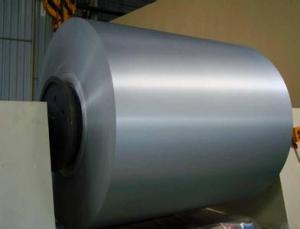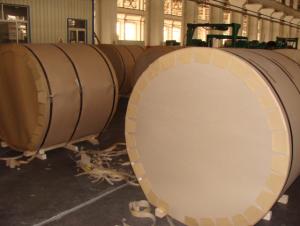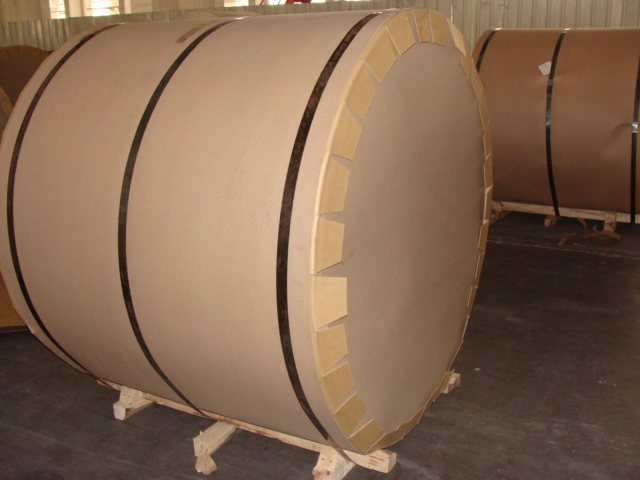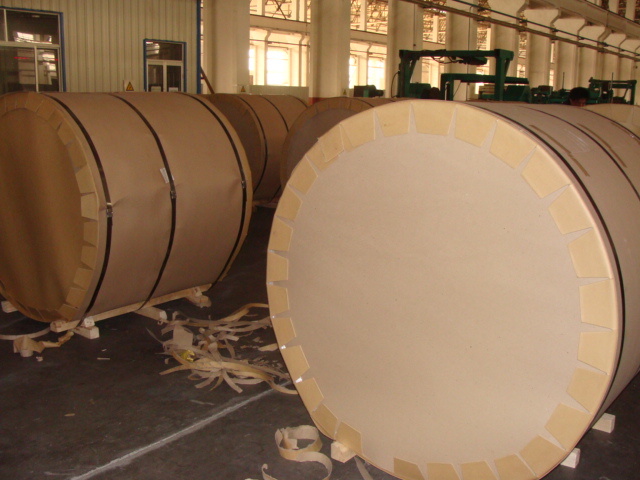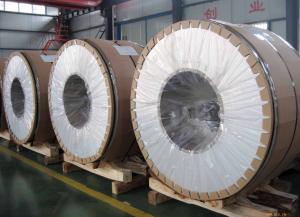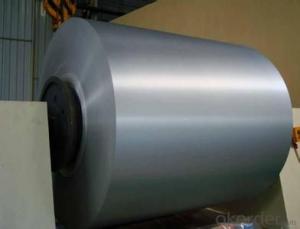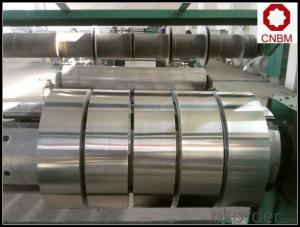Customized 5083 Aluminum Coils Mill Finished 3xxx
- Loading Port:
- China Main Port
- Payment Terms:
- TT or LC
- Min Order Qty:
- 5 g/ft
- Supply Capability:
- 10000 g/ft/month
OKorder Service Pledge
OKorder Financial Service
You Might Also Like
1.Structure of Aluminum Coils Mill Finished 3XXX Description
Aluminum Coils Mill Finished 3XXX has great ductility, heat conductivity, anti-corrosion and moisture resistance properties.
Aluminum Coils Mill Finished 3XXX is widely used for electronics, instruments, lighting decoration, packing industry, house decoration, curtain wall, honeycomb-core panel, sandwich panel, aluminum composite panel and aluminum composite pipes.
2.Main Features of Aluminum Coils Mill Finished 3XXX
• Superior quality of raw material
• Reasonable and stable chemical composition
• Accurate tolerance
• Goode mechanical property
3Aluminum Coils Mill Finished 3XXX Images
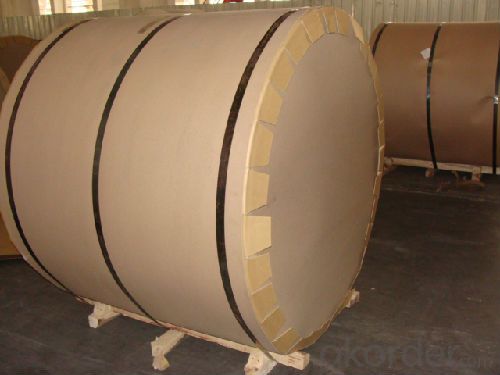
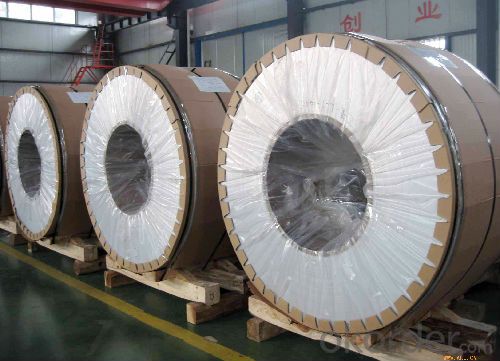
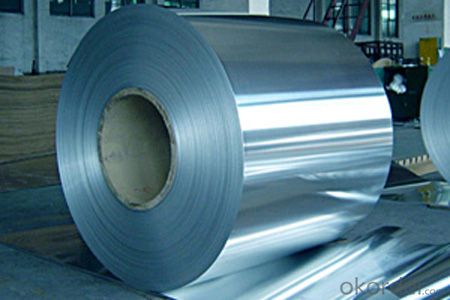
4.Aluminum Coils Mill Finished 3XXX Specification
| Alloy | AA3xxx (AA3003,AA3004,AA3005,AA3105 etc) |
| Temper | H14,H16,H18,H22,H24,H26,H32,O/F |
| Thickness | 0.2mm--100mm |
| Width | 30mm--1700mm |
| Standard | GB/T 3880-2006 |
5. FAQ of Aluminum Coils Mill Finished 3XXX
A.When will you deliver the products?
Aluminum Coils Mill Finished 3XXX will be delivered within 35 days after receiving advanced payment or original L/C.
B.What is the MOQ?
The MOQ is 5 tons for each size.
- Q: Can aluminum coils be used for heat recovery systems?
- Yes, aluminum coils can be used for heat recovery systems. Aluminum is a highly conductive material, which makes it an excellent choice for transferring heat. Aluminum coils are often used in heat exchangers and heat recovery systems to efficiently transfer heat from one medium to another. These coils are designed to maximize surface area, allowing for greater heat transfer. Additionally, aluminum is lightweight and corrosion-resistant, making it durable and suitable for various applications in heat recovery systems.
- Q: Is it possible to utilize aluminum coil in the welding process?
- <p>Yes, aluminum coil can be used for welding. It is commonly used as a filler material in processes like MIG (Metal Inert Gas) welding, where it is fed continuously into the weld pool to create a joint. Aluminum welding requires specific techniques and equipment due to its high thermal conductivity and the need to prevent oxidation. The aluminum coil must be of high quality and clean to ensure a strong, corrosion-resistant weld.</p>
- Q: How do I write ionic formula for Sodium Aluminum Silicate? Please explain in a easy way ,,,,,,,,,,,,
- www.okorder /
- Q: How do aluminum coils compare to steel coils?
- The characteristics of aluminum coils and steel coils distinguish them in terms of strength, weight, corrosion resistance, and cost. Strength-wise, steel coils generally exhibit a higher tensile strength compared to aluminum coils. This means that steel coils can endure greater stress and pressure without deforming or fracturing. Nonetheless, aluminum coils retain sufficient strength for various applications and can be reinforced or designed for specific purposes. Weight plays a significant role in the comparison between aluminum and steel coils. Aluminum is a lightweight metal, weighing approximately one-third of steel. This lightweight property grants aluminum coils an advantage in applications where reducing weight is crucial, such as in transportation industries or aerospace. Regarding corrosion resistance, aluminum coils surpass steel coils. Aluminum naturally develops a protective oxide layer that prevents further corrosion. Conversely, steel is prone to rust and necessitates additional coating or treatment to enhance its corrosion resistance. This makes aluminum coils the preferred choice in coastal or humid environments where corrosion poses a significant concern. Cost is another vital factor to consider. Aluminum coils often entail a higher initial cost than steel coils due to the elevated cost of raw materials and manufacturing processes. Nevertheless, the overall cost may fluctuate depending on variables like transportation, maintenance, and lifespan. Aluminum coils tend to have lower maintenance costs and longer lifespans due to their corrosion resistance, which can offset the initial investment in the long run. In conclusion, aluminum coils provide several advantages over steel coils, such as lower weight, superior corrosion resistance, and potential long-term cost savings. However, steel coils still boast higher tensile strength and may be the preferred choice in applications that require maximum strength or have a restricted budget. Ultimately, the selection between aluminum and steel coils hinges on the specific requirements and considerations of the intended application.
- Q: When the aluminum roll is rolled 0.14, when the coil is taken off, what happened to the loose layer?
- I think the 0.14mm is certainly not the aluminum coil lining sleeve forgot, then the biggest doubt is the oil removal effect is not good, with rolling after the aluminum layer between the leakage for aluminium roll support is not enough, the collapse of the volume, the specific performance is the edge of the circular aluminum layer was uniform into ripples; in addition is a kind of expression is down when the aluminum coil suddenly becomes uneven, but the bad effect caused by oil
- Q: Is it possible to use a metal detector to locate an aluminum coil?
- <p>Yes, you can use a metal detector to detect aluminum coils. Metal detectors are designed to detect various types of metal, including aluminum. While they are often used for detecting ferrous metals like iron, they can also pick up non-ferrous metals such as aluminum. The effectiveness of detecting aluminum may vary depending on the type of metal detector and its sensitivity settings. Ground conditions and the size and composition of the aluminum coil can also affect detection. It's important to adjust the metal detector to the appropriate settings for detecting non-ferrous metals to increase the chances of successful detection.</p>
- Q: What are the ideal materials for crafting a lampshade and why are they preferred?
- <p>The best material for making a lampshade depends on the desired aesthetic and functional requirements. Fabric is often preferred for its ability to diffuse light and provide a warm glow, with materials like cotton or linen being popular choices for their durability and texture. For a more modern look, materials like acrylic or glass can be used, offering a sleek appearance and the potential for more direct light. Paper is also a good option for its cost-effectiveness and the variety of textures and colors available. Ultimately, the best material is one that complements the lamp's design and the room's d茅cor while fulfilling the necessary light diffusion and safety requirements.</p>
- Q: 1) Do you recycle aluminum (soda cans, etc.)?2) Why do or don't you recycle aluminum?3) Does it make a difference to the economy whether we recycle or not?4) Does it make a difference to the environment whether we recycle or not?5) What do you think would help people to recycle more? Such as a reward, information, resources, etc. Don't feel the need to limit responses. Thank you.
- 1) I do recycle aluminum when I have it. 2) Well I don't really recycle it because I don't drink soda or beer or use much foil. It's actually bad for you all together so I avoid it. When I do recycle aluminum I do it we're taught that its supposed to be recycled. I more commonly recycle paper and plastic. 3) Of course it makes a difference whether we recycle. It allows for re use of most material in essence slows down the proportion of useless garbage. 4) Yes it does, in my opinion. 5) I think that being taught and explained thoroughly at a young age would help. Not only teaching but setting n example. Also, supplying readily available recycle bins at schools, shopping centers, public and at home should enforce it more.
- Q: Are aluminum coils suitable for solar panel applications?
- Yes, aluminum coils are suitable for solar panel applications. Aluminum is a lightweight, durable, and corrosion-resistant material, making it an ideal choice for solar panels. It provides excellent heat dissipation, ensuring optimal performance and efficiency of the solar panels. Additionally, aluminum is readily available and cost-effective, making it a popular option in the solar industry.
- Q: Are there any limitations to the maximum coil length of aluminum coils?
- The maximum length of aluminum coils is subject to certain limitations. Factors that affect the maximum coil length include the thickness and width of the coil, the strength and tensile properties of the aluminum alloy, the equipment used for coil processing, and the intended application of the coil. One limitation is the strength and ductility of the aluminum alloy. Aluminum alloys with higher strength and lower ductility may have restrictions on the maximum coil length due to the risk of coil breakage or deformation during processing or handling. Another limitation is the coil processing equipment. The maximum coil length is often determined by the size and capabilities of the equipment used for slitting, cutting, or forming the coils. If the equipment has limited capacity or is not designed for longer coils, it may not be able to effectively handle or process longer lengths. The intended application of the coil can also impose limitations. For example, in the automotive industry, there may be restrictions on the maximum coil length based on the size and weight limitations of the vehicles. Moreover, logistical factors such as transportation and storage can also impose limitations. Longer coils may be more challenging to handle, transport, and store, which can increase the risk of damage or pose challenges in terms of logistics and space requirements. Therefore, it is crucial to consider various factors such as alloy properties, equipment capabilities, application requirements, and logistical considerations to determine the practical limitations of coil length for a specific situation, as there is no specific universal limit to the maximum coil length of aluminum coils.
Send your message to us
Customized 5083 Aluminum Coils Mill Finished 3xxx
- Loading Port:
- China Main Port
- Payment Terms:
- TT or LC
- Min Order Qty:
- 5 g/ft
- Supply Capability:
- 10000 g/ft/month
OKorder Service Pledge
OKorder Financial Service
Similar products
Hot products
Hot Searches
Related keywords
